In October 2020 and 2021 I reported a total of 21 papers published by Professor Vojtěch Adam that contained image problems. Vojtěch Adam is a professor in chemistry, and head of the Department of Chemistry and Biochemistry, at Mendel University in Brno, Czech Republic. He is a top Czech researcher in cancer and nanotechnology.
Today, a day before his appointment as the new Rector (Dean) of Mendel University, a committee released a report of their findings from an investigation into twelve of these papers. Their conclusions came as a big surprise.
This blog post is based on a Twitter thread I did today, which starts here and was captured by ThreadReaderApp.
Update February 12: Professor Adam resigned from his position as rector-elect on January 31, 2022, one day before his start date.
If they receive allegations of scientific misconduct, universities sometimes carry out internal investigations. Unfortunately, many such cases are swept under the rug. Even if multiple papers have been flagged with strong evidence of image manipulation, research institutions like to keep up appearances and to protect their star researchers, especially if these researchers bring in a lot of grant money and prestigious authorships. Examples of instances where top researchers have walked away unscathed after allegations of science misconduct investigated by their institutions are plentiful (here, here, and here).
But the Czech/German committee that investigated the Vojtěch Adam et al. papers came to a surprisingly different conclusion. The committee found issues ranging from gross negligence to clear cases of data manipulation, and recommended the retraction of between six and nine papers.
A prolific author
Aged 42, Professor Vojtěch Adam has been a very prolific writer. His faculty page lists a whopping 720 records as of today. The scholarly website Dimensions.ai is a bit more modest, but still shows he has published 579 papers. That’s roughly one a week for the past 10 years.
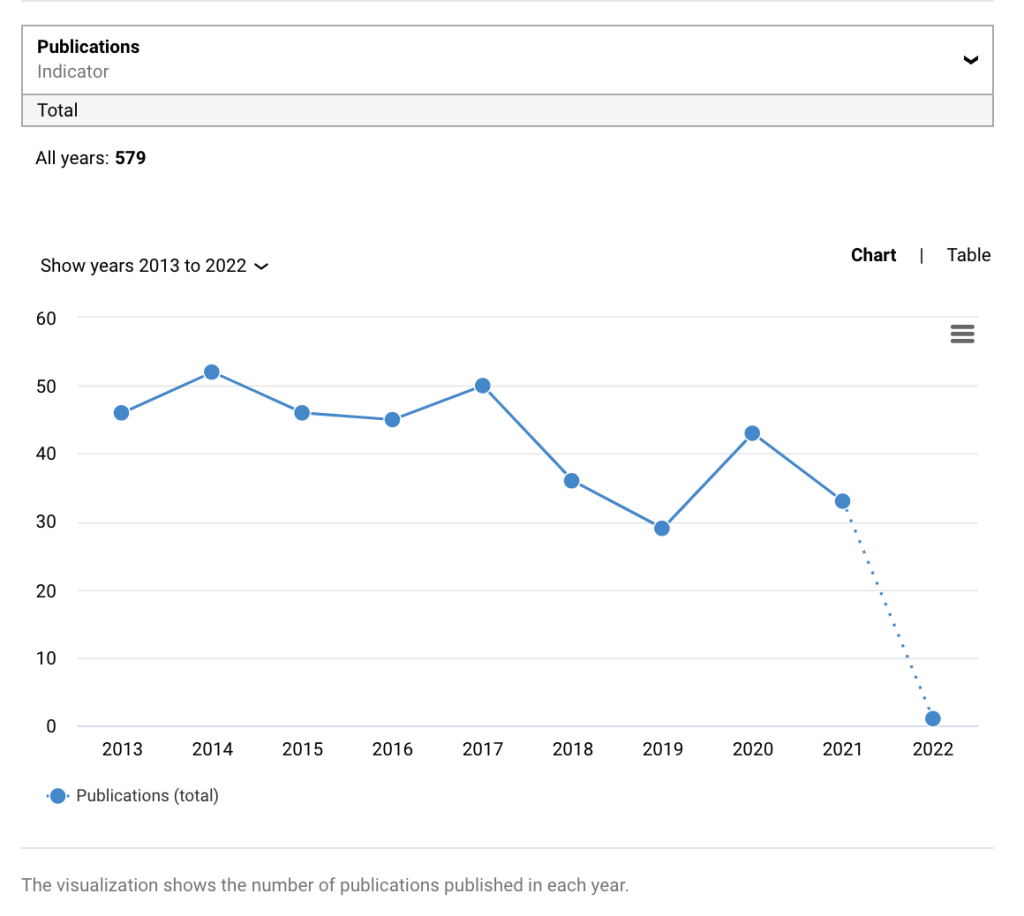
Adam has also been awarded a large Starting grant from the European Research Council (ERC). This 2018 article states he had earned a million euros in cancer research grants, matching this Cordis record of a 2018 ERC grant of almost 1.4 million euros.
First image problems found in 2019 and 2020
In October 2020, a PhD student brought to my attention a 2018 paper published by Dr. Adam in Oncotarget. It appeared to contain some duplications. I agreed, and posted the concerns on PubPeer, supplemented with an additional finding by Petr Svoboda via Twitter.
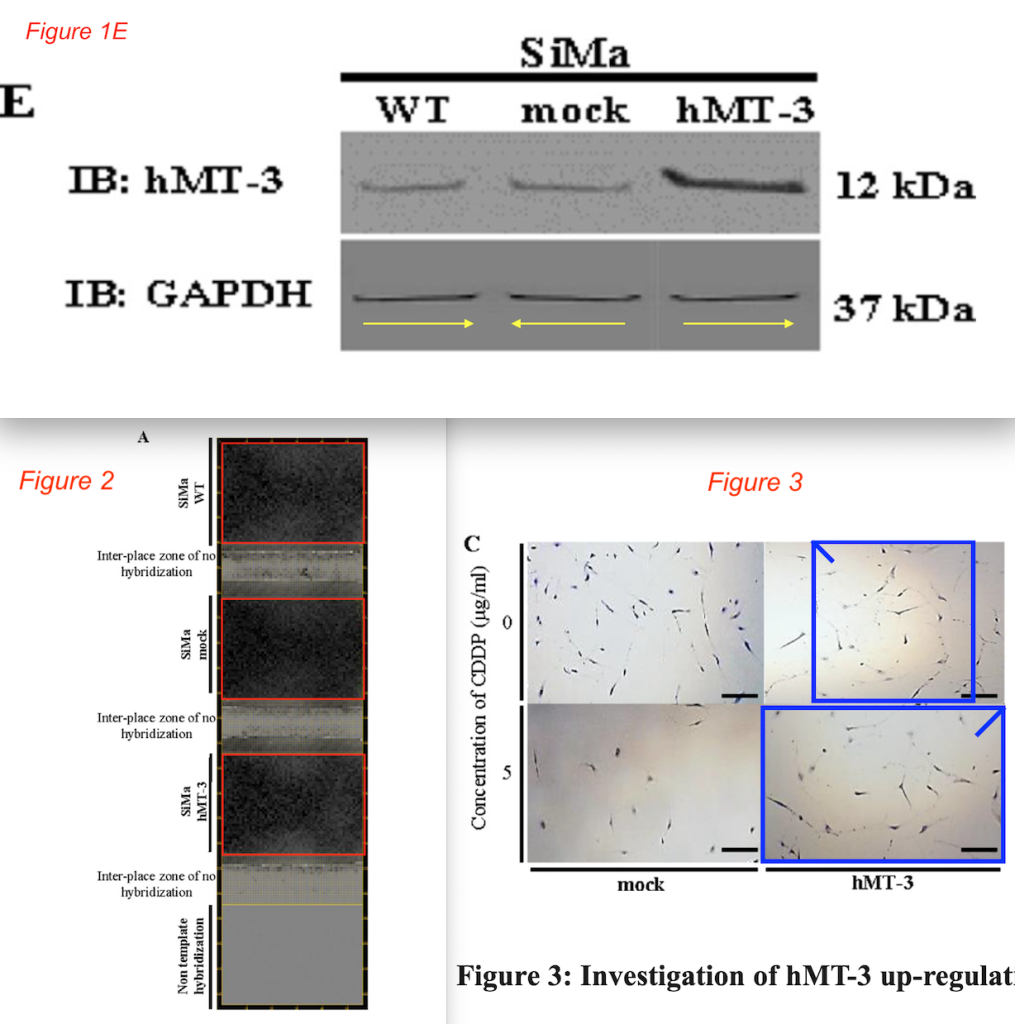
After this first example, I examined a couple of other papers from the same author, and found an additional seven with image concerns. Problems in two other papers had already been found by PubPeer users Thallarcha lechrioleuca in November 2019 and Actinopolyspora biskrensis in March 2020.
I did not have time to do an extensive search. With such a big oeuvre and a steady stream of requests to look at other papers, I only searched a subset of papers from the Adam lab. By the end of 2020, nine papers co-authored by Vojtěch Adam had PubPeer posts.

Source: https://pubpeer.com/publications/35DB34D868CE01E95E0E4E7C1C405B
Elected to be the new Rector, but more problems arise
In October 2021, Professor Adam was elected as the new Rector of the Mendel University in Brno, with his appointment starting in February 2022. During a Twitter discussion, it was brought up that about a dozen of his papers had been discussed on PubPeer for image problems. A good question was asked. Should someone suspected of misconduct be elected as the Dean of a university?
After this discussion I decided to examine a larger set of papers from Adam’s group, and found several more with image problems. All of these — now making a total of 21 papers — were posted by me on Pubpeer. Others joined the search.
In total, Vojtěch Adam now has 26 papers that have earned PubPeer posts, and an additional one without a DOI. A list of these 27 papers can be found here [pdf, Excel].
Leonid Schneider summarized the concerns about most of these papers in a blistering blogpost on For Better Science. He wrote:
“Adam, a holder of a €1.4 million ERC research grant, whose ORCID record shows over 900 co-authored papers, himself claims to “have never fraud or falsify data.””

Source: https://pubpeer.com/publications/2A6130472F4F188970664DD8474294
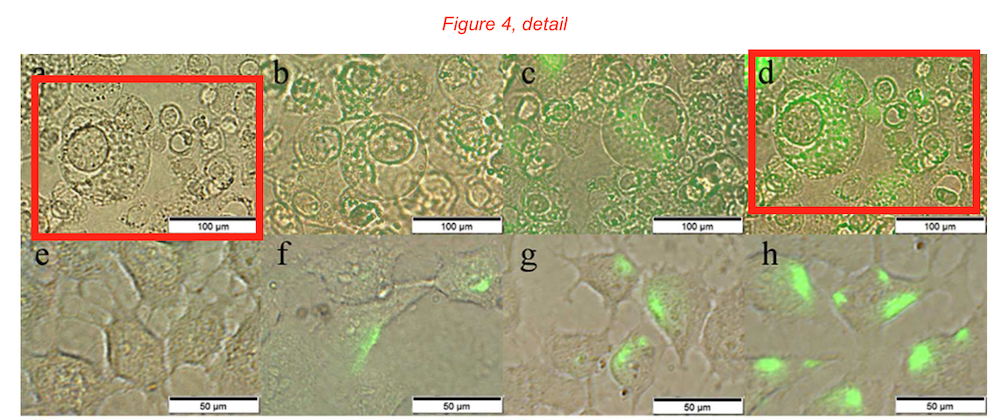
Source: https://pubpeer.com/publications/46C764920EBEDF6202D47BC6D3B827

Source: https://pubpeer.com/publications/94C8FC0E640DC87C7F08D603A391C1
The Investigation and the Report
Because of the upcoming Rector appointment, the image concerns found in 26 Adam et al. papers, and a lot of media attention, the three institutions with which Prof. Adam is affiliated — MENDELU, Brno University of Technology (BUT), and Central European Institute of Technology (CEITEC) — announced that they would form a committee to investigate the reported allegations.
As per the Investigation Report released today, the committee consisted of six members representing the three affiliated institutions, as well as a broader scientific community.
The committee investigated a subset of twelve papers on which Dr. Adam was the corresponding author. The members came to the strong conclusion that six of these papers should be retracted, and that another three could be retracted.

The report mentions experiments that could not be found in the lab notebooks, “raw” images created with Powerpoint, “original” images that were low resolution scans unlikely to have originated from a microscope, and blot images without markers and labels. It’s a fascinating read.
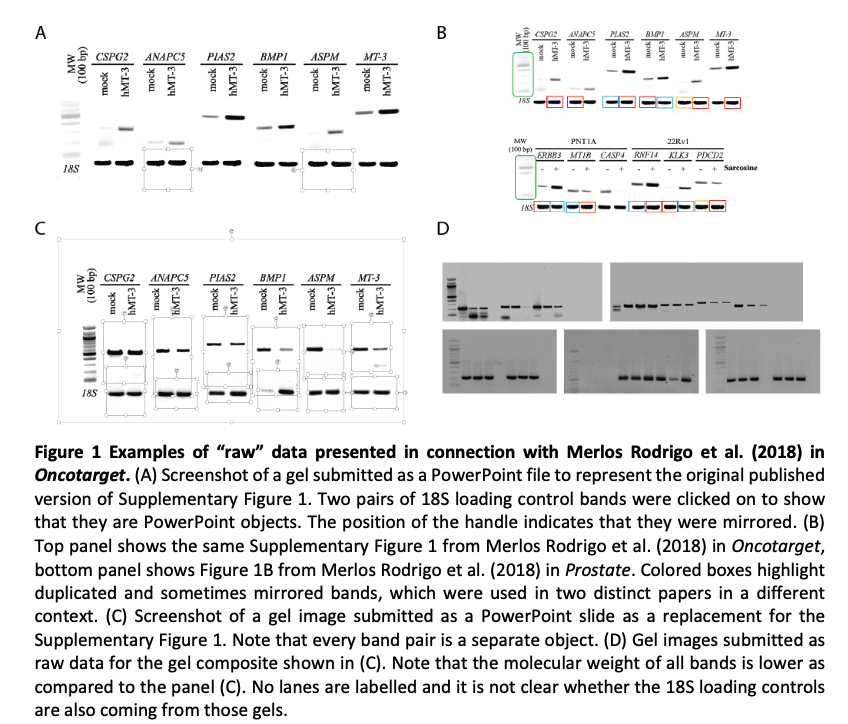
Source: https://www.ceitec.cz/vojtech-adam-investigation-report-pdf/f52720
For each paper, the Report describes the original allegations, whether or not raw data was found or supplied by Professor Adam, what the committee thought of the supplied replacements, and a recommendation about correction or retraction.
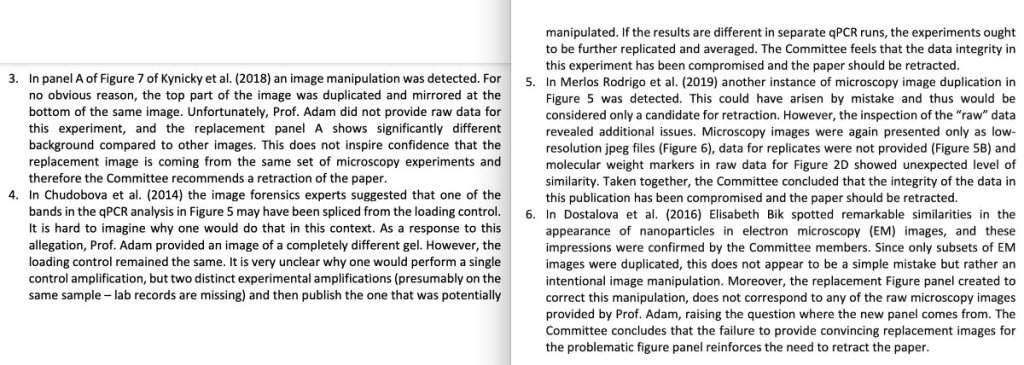
The Report ends with some strong words. It states: “Whenever discrepancies are so obvious that they can be discovered simply by visual inspection, a doubt is cast on the entire piece of work.” They describe some of the findings as a “clear case of scientific misconduct“.
And, with a clear reference to Adam’s prolific career, they write “Adaptive behaviour towards high volume publishing is detrimental to the quality of science.“
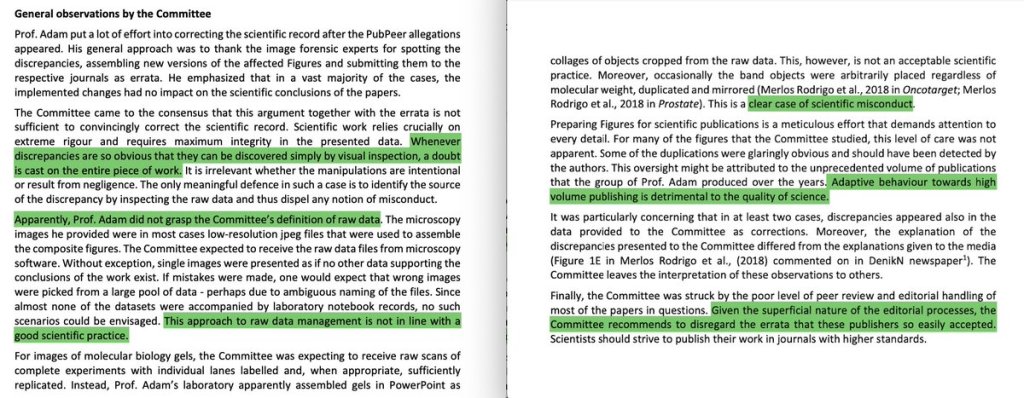
Compliments for a job well done
A great many things went well here, and I have to commend the committee members for how they handled this case.
- The committee investigated with rigor and speed. The investigation was started at the end of October 2021, and the report was released today, just three months later. This is fantastic, compared to the years and years that other universities take — often never reaching an endpoint at all.
- The report includes many details about the process, the findings, and the data obtained from Dr. Adam. It provides an openness I have never seen before about the process and the note book findings.
- The investigation was not handled internally and independently by each of the individual research institutions behind closed doors, but by a collaborative team of scientists from the three Czech research centers, as well as from other Czech and German institutions. This made it less likely that each institution might try to hide any concerns they found from the outside world.
- The committee members did not blindly accept the ‘raw data’ provided by Professor Adam. Instead, they found that these ‘original’ figures did not match the published images, or that they appear to have been recently created or assembled.
- The committee members made better decisions than the journal editors, some of whom naively accepted the author’s new figures and issued corrections for some papers. For example, in this Chemical Papers article, where an image panel appeared to contain duplicated parts, the journal accepted a new figure panel supplied by Adam et al. and issued a Correction. The committee, however, was less gullible, and now recommends a retraction. They wrote: “This does not inspire confidence that the replacement image is coming from the same set of microscopy experiments and therefore the Committee recommends a retraction of the paper.“
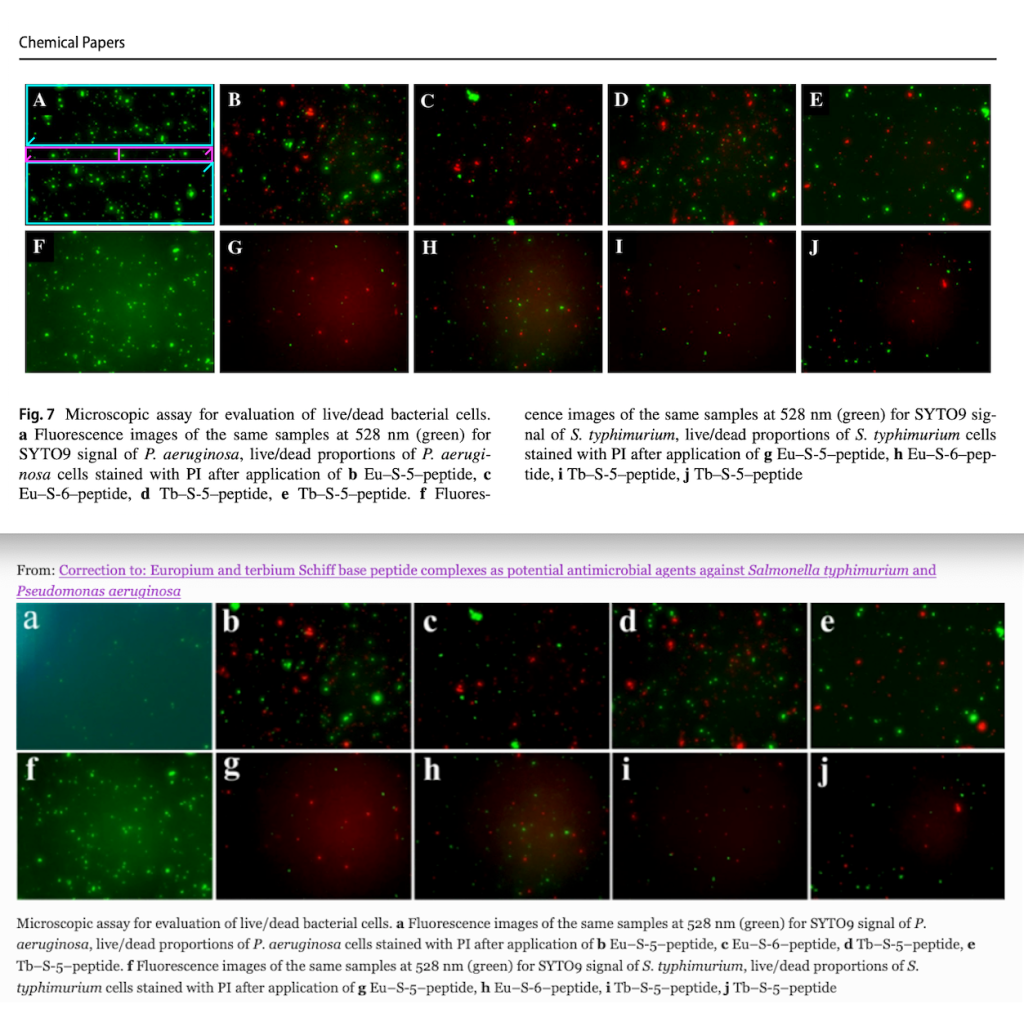
Bottom: Replacement figure in the Correction, which states that ‘inadvertently the same microscope image was used twice to represent the control’ – without wording indicating the image might have been manipulated. Source: https://link.springer.com/article/10.1007/s11696-021-01998-w
A big compliment, therefore, to the Czech/German committee members for the way they handled this investigation. I am so grateful to see that there are some research institutions and communities that truly value scientific integrity.
This is a remarkable report.
And finally thanks to Twitter users @zdeborova @SvobodaLab and @lunruj for bringing this case to my attention over the past months.

I admire the work done by you and your colleagues beyond expression. As I’ve mentioned bedore, I’m not a scientist, but a historian of the ancient Near East. My forthcoming book shows indisputable examples of suppression of evidence as well as indisputable extensive falsification. Some small parts of my proof have been published. No-one has been able to refute them. Instead, i’ve been attacked personally, without any discussion of the proofs of my findings. These attacks gave me useful hints where to look, and I found a host of more instances which I proved. I think part of the reason for the reaction is that I’ve shown collusion by a small clique on top of what has been done by individuals. What I’ve found out is not just suspicious: all my proofs for all instances are cast-iron.
I’m about to turn 79. Let me tell you I have observed supression of evidence as well as falsification frequently. Most of this is clumsy, and easy to show conclusively. I’ve published the data suppressed with proof of their authenticity and an explanation of how anyone can go and look in articles, not as the subject of the argument, but in passing. Proving falsification can be done because no-one has to query experiments. Anyone can look at the documents and the archaeological reports. What has aroused these reactions is that I’ve said where anyone could look for themselves, and people have looked.
Regards, (Prof.) Ruairidh Bóid
Melbourne
LikeLike
What has your computer done to my surname? You need a system able to handle accents. If the accents can’t be printed, then dropping the letter altogether is not an answer. The surname is Boid with an acute accent on the second letter. The form Bid produced by your computer is quite funny because it means a chook, specifically a mature hen. Otherwise it’s a pet-name for the Gaelic girl’s name Bride (with an accent on the third letter).
LikeLike
Email from Pavel Tomančák, head of CEITEC Consortium, MPI-CBG group leader and one of Adam’s investigators:
“As of 1st of February 2022, Professor Adam resigned on his position of Research Group Leader at CEITEC BUT. Management of the CEITEC BUT has decided that the style of Vojtech Adam´s research group scientific practise will be examined by a control audit. Additionally, I am planning to take steps to increase awareness regarding good scientific practice among CEITEC consortium researchers at all career levels. “
ERC announced to give me an update soon. In my view, since Adam’s ERC-funded research was located at CEITEC/VUT, his running grant is not tenable anymore, for formal reasons alone.
And for Adam’s mentor and corresponding author of many fraudulent papers, the Masaryk University professor Rene Kizek, it’s literally game over. Here is what Michaela Pokorná, Rector’s spokesperson, wrote to me:
“Shortly after the incorporation of the Faculty of Pharmacy into the structure of Masaryk University in July 2020 (previously, the Faculty was part of the University of Veterinary and Pharmaceutical Sciences Brno), the current management of MU instructed the management of the Faculty of Pharmacy, where Prof. Kizek worked at the time, to immediately implement the academic ethical standards of Masaryk University. The new management of the Faculty of Pharmacy MU then terminated its cooperation with Prof. Kizek as of 31 December 2021. Therefore, Prof. Kizek is no longer employed by Masaryk University.
Thank you for your interest and your care for the quality of science and ethical integrity.”
Reader comment with some more developments:
“The outgoing rector of Mendel University in Brno, Danuše Nerudová, has recommended her successor Vojtěch Adam to resign. An expert commission, which she initiated, found several scientific errors in scientific articles and recommended their withdrawal from journals. The Conference of Rectors is now asking Professor Adam to explain the doubts about his scientific articles. According to the rectors, the case casts a bad light on Czech science.
Nerudova is sorry that the good name of the university, to which she has devoted four years of hard work, is now at stake, she wrote in a statement. Vojtěch was due to attend the appointment of new rectors at Prague Castle on Wednesday but was not present due to illness. He was due to take up the post on 1 February.
Adam said he does not intend to resign. He does not consider the alleged misconduct to be so fundamental as to require a decisive and irreversible step.”
LikeLiked by 1 person
Submitting PowerPoint slides as original data is a really stunning level of gross incompetence
LikeLiked by 1 person
Just deserts are bitter indeed.
LikeLiked by 1 person
You have been referred here.
Recommendations and a possible solution to prevent authors from paying to publish in journals.
https://doi.org/10.5281/zenodo.5953602
LikeLike
The link to the report no longer works. Are you aware of an alternative source? Thank you.
LikeLike
Working link to report (EN):
https://www.ceitec.eu/vojtech-adam-investigation-report-pdf/f57047
LikeLiked by 1 person